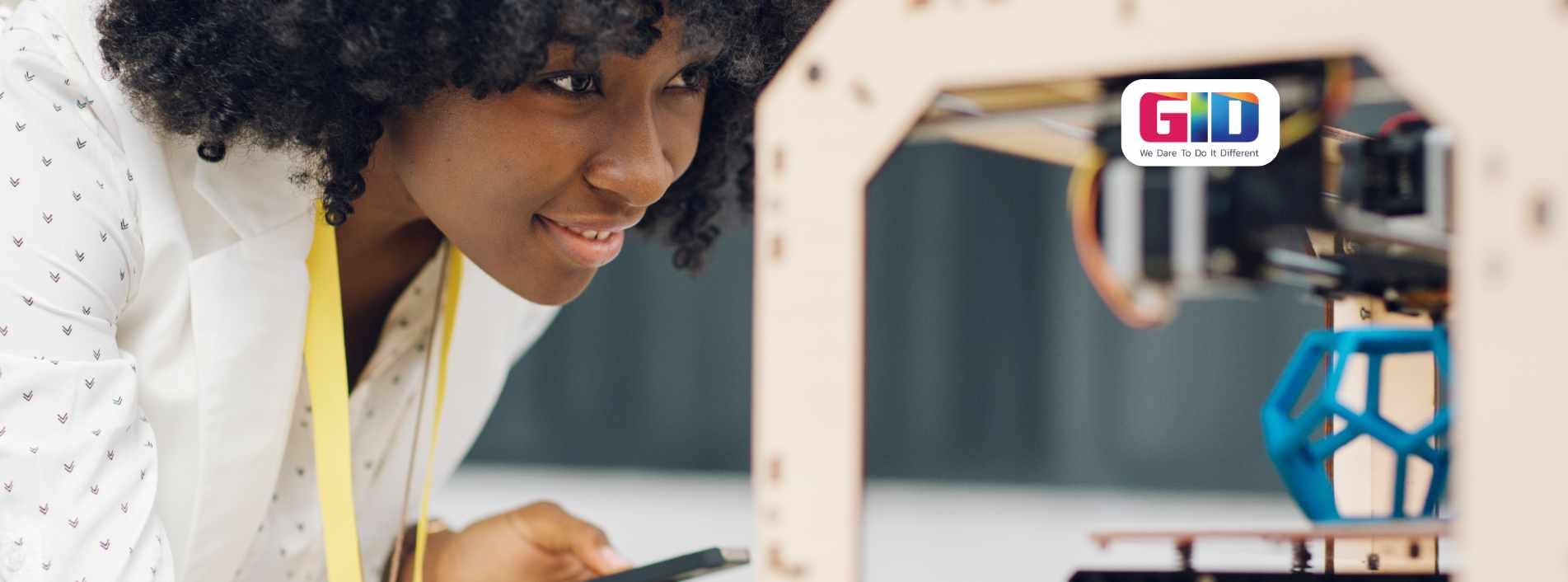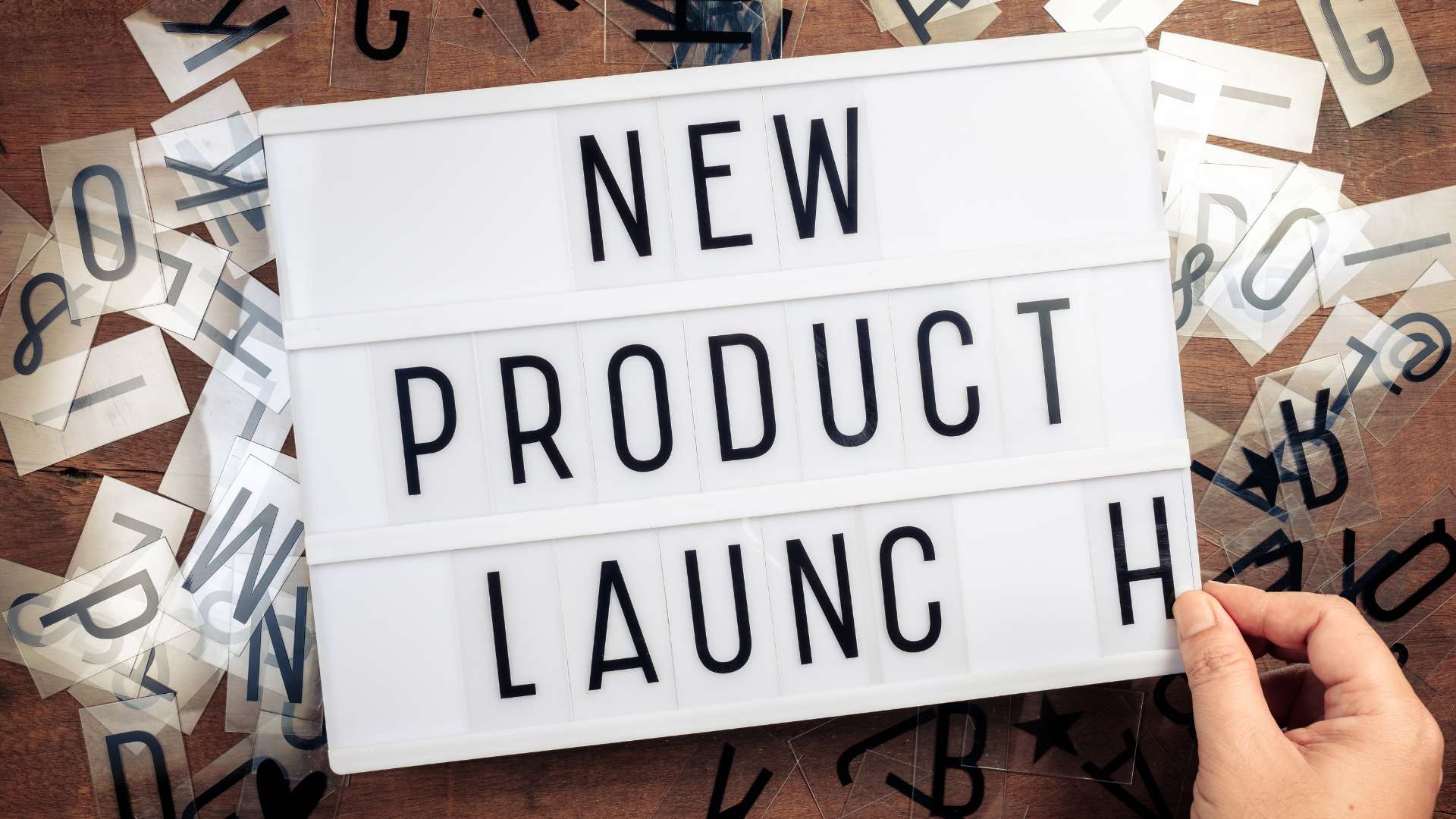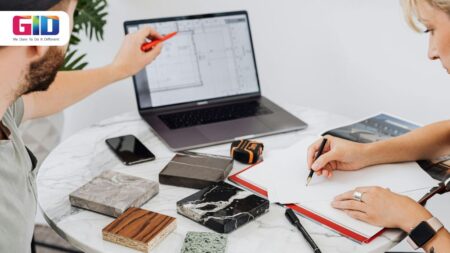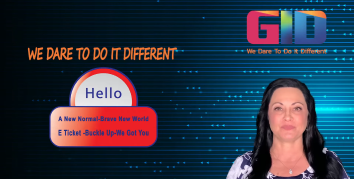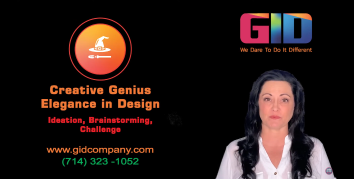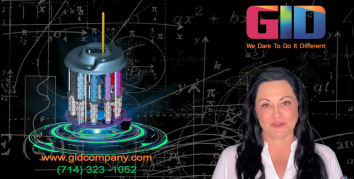We are the GID Company – an American product development company with more than four decades of experience. Here, we explain the top five reasons why 3D printing is used in new product development.
Whether we are manufacturing a spaceship, a paper clip or anything related to the automobile industry, we are all searching to make something efficient, i.e. faster, better and cheaper. Any innovator or entrepreneur who has tried to accomplish these traits in a single project has realized the challenges of meeting these criteria. Fortunately, due to the remarkable growth in the 3D printing is used over the past decade, triumphing these goals is now a very real possibility.
Used for Product Designers can Easily Prototype More Iterations Without Exceeding the Timeline or Budget | Why 3D Printing?
CAD (Computer Aided Design) software ascended as a useful tool for transforming a concept into a product. This CAD software made it easy for product designers to test their design to a certain extent. However, as tried and tested as the product design software may be, there comes a stage when it’s just easier and quicker to examine the design in real life conditions—this is exactly why 3d printing becomes invaluable for receiving useful feedback.
3D printing is used in the product design and development process, offering a range of benefits that enhance both efficiency and accuracy. These digital representations of physical objects allow designers to create detailed, precise, and easily modifiable 3D models of their products. One of the primary advantages of CAD models is the ability to visualize and iterate designs before physical prototypes are created. This visualization helps identify potential design flaws, assess aesthetic elements, and test functionality in a virtual environment, saving time and resources.
Here’s why 3D printing is one of the best solutions, especially when a product designer is not controlled by order approvals and lengthy lead times for product prototypes. Waiting for a product prototype to arrive chokes the creativity of a product designer before moving ahead with the product design. Well, in such a critical scenario, having in-house access to a 3D printing keeps the product designers’ creativity rolling by offering them more iterations to test in a lesser time frame. 3D printing is used for design to finish prototype, product designers can prototype earlier in the design cycle and pinpoint necessary modifications that are needed to be made.
Furthermore, why 3D printing is important is evident as it facilitates product designers to split the model into a certain section and just print that portion to prototype and test. Use of 3D printing reduces the print time, decreases the time it requires to get reviews, and reduces the overall cost of product prototype development.
Used for Better Collaboration Resulting in Improved Design and Manufacturability | Why 3D Printing?
3D printed parts can be used to test and validate a product design, and they can also be used to communicate the design intent to the marketing department, manufacturers and suppliers. As the sales and marketing team can physically see the design ahead of time, they get sufficient time to summarize a potent marketing plan to support the product and to overcome the prevailing competition. Moreover, by sharing a model with your product development company and suppliers will help them determine whether the product can be manufactured within the fixed budget or not. 3D printing helps you identify issues that could hinder the manufacturing process.
You can offer your manufacturers and suppliers an accurate representation of the end product that could help them avert any miscommunication when interpreting the CAD models. That’s Why 3D Printing is so reliable.
Field Testing Prototypes That Resemble The Final Product Provide Insight Into Potential Design Flaws
Why 3D printing? With the advancement in the 3D printing technology, the availability of the material choices for 3D printing has come a long way, including a wide variety of material such as, urethane rubbers, water-clear acrylics and full color palettes. In some cases, the actual raw material such as polycarbonate, ABS, and nylon to name a few are used to 3D print. Whereas, in other cases, it can be employed to produce blow molds, injection molds, and patterns for silicone molding.
This allows the development of a product prototype in a material that is actually not available for 3D printing. Field-testing a product prototype similar to a manufactured part will generate useful data and could help duck expensive mistakes and modifications later in the product development lifecycle. That’s Why 3D Printing is essential.
Seeing Is Believing
Why 3D printing? 3D Printing is used for development of product prototype using the actual raw material, targeted customers could test the product without knowing they are holding a prototype. Something that looks and feels like a finished product helps confirm the goals set for the product have been reached. It is advantageous in both the ways; first, it helps you build faith in the product within your organization; and second, it helps you find stakeholders for your project.
Improved Customer Satisfaction
Why 3D printing? Plenty of design iterations and the succeeding testing of a new product help to make sure you are offering the end-users the best product against their investment. 3D printed product prototypes lead to a successful finished product because vital decisions about the function and feel of the product were made early on in the design process.
About The GID Company
Why 3D Printing is transforming industries, and GID Company is at the forefront of this innovation. Based in California, GID Company is a custom product design and manufacturing company with more than four decades of industry experience. We specialize in creating new and custom products for a variety of industries, including aerospace, automotive, healthcare, and lifestyle, among others. That’s Why 3D Printing is important.
If you have a revolutionary, million-dollar idea that can steer the market in your favor, come to us. We can help you bring your idea to life using cutting-edge techniques and technology, demonstrating why 3D printing is a key factor in making your vision a lucrative reality.
Read Also: Prospective of 3D Printing Explained

